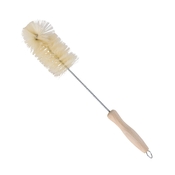baachitraka
Member
In the past year I use to mix many formulas of the photo developer and fixer and stored them in brown glass 1l bottles. Unfortunately I did not name them clearly.
Is there a easy way to clean them all for storing fixer and stopbath only?
Is there a easy way to clean them all for storing fixer and stopbath only?












